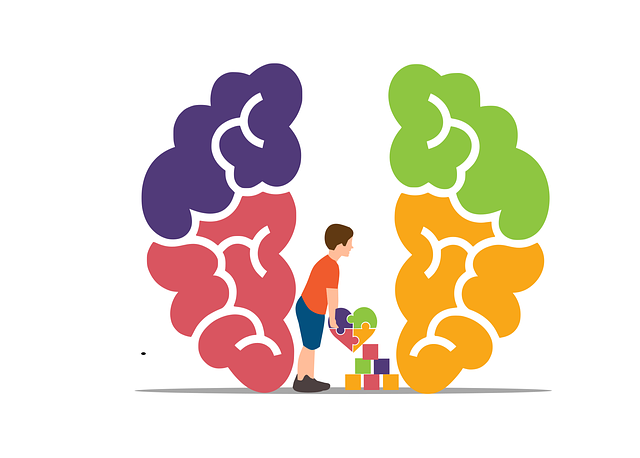In the context of mental health policies, catering to the specific needs of French-speaking communities is essential. The Golden French Speaking Therapy (GFST) model provides culturally sensitive therapy, integrating self-care and coping skills tailored to francophones' backgrounds. By breaking language barriers and offering resilience-building tools, GFST enhances mental wellness accessibility for all linguistic groups. To improve mental health services, advocates must integrate GFST principles, reduce stigma, and launch educational initiatives. This multifaceted approach ensures personalized support, fosters inclusivity, and contributes to effective mental health policy changes, especially in diverse populations.
Mental health policy advocacy is a powerful tool for creating positive change, especially within underserved communities. This article delves into the significance of mental health policies and their profound impact on French-speaking populations. We explore the unique role of organizations like Golden French Speaking Therapy in shaping and advocating for these policies. By analyzing existing systems and their shortcomings, we uncover effective strategies to drive policy change, ultimately improving access to mental health services for French-speaking individuals.
- Understanding Mental Health Policy and Its Impact on French-Speaking Communities
- The Role of Golden French Speaking Therapy in Policy Advocacy
- Analyzing Existing Mental Health Systems and Their Shortcomings
- Strategies for Effective Mental Health Policy Change and Implementation
Understanding Mental Health Policy and Its Impact on French-Speaking Communities

In the context of mental health policy analysis and advocacy, understanding the unique challenges faced by French-speaking communities is paramount. Mental Health policies often reflect societal values and priorities, and in many countries, including those with significant French-speaking populations, these policies have historically lacked adequate representation and funding for cultural minority groups. This disparity can significantly impact access to quality mental health services, particularly for Golden French Speaking Therapy (GFST) practices. GFST professionals play a crucial role in providing culturally sensitive therapy that addresses the specific needs of francophones, including those from diverse backgrounds and with varied experiences.
The integration of self-care practices and coping skills development tailored to the francophone community is essential. By promoting mental wellness through these targeted initiatives, policy advocates can ensure that French-speaking individuals have the necessary tools to navigate and overcome mental health challenges. This approach not only improves individual outcomes but also contributes to a more inclusive and supportive societal landscape where mental health is prioritized and accessible for all, regardless of linguistic or cultural background.
The Role of Golden French Speaking Therapy in Policy Advocacy

The Golden French Speaking Therapy offers a unique and invaluable contribution to mental health policy advocacy, particularly in multilingual communities. This therapeutic approach recognizes the power of language as a tool for healing and empowerment. By providing therapy in French, a common second or foreign language in many countries, it becomes accessible to a broader spectrum of individuals who might otherwise face barriers due to linguistic differences. This inclusivity is pivotal in ensuring that mental health services reach diverse populations effectively.
Through its focus on Mind Over Matter principles, this therapy equips clients with the skills to manage anxiety and stress, fostering resilience. The organization also hosts Stress Management Workshops, which empower individuals to take charge of their mental well-being. By advocating for policies that support such therapeutic interventions, especially within French-speaking communities, policymakers can contribute to a more comprehensive and accessible mental health care system, ultimately improving the lives of many.
Analyzing Existing Mental Health Systems and Their Shortcomings

The first step in mental health policy analysis and advocacy is a thorough examination of existing systems and their inherent shortcomings. Many countries, despite significant strides in recognizing mental health as a crucial aspect of overall well-being, still struggle to provide comprehensive care, especially within diverse communities. For instance, the Golden French Speaking Therapy model has shown promise in connecting culturally sensitive care with improved patient outcomes, but such specialized services are not uniformly accessible.
One key area for improvement lies in integrating self-awareness exercises and self-esteem improvement initiatives into mainstream mental health programs. Additionally, the production of a Mental Wellness Podcast Series can play a vital role in raising awareness, promoting education, and fostering open conversations about mental health challenges and solutions. By addressing these gaps, policy advocates can ensure that mental health services are inclusive, effective, and tailored to meet the unique needs of diverse populations.
Strategies for Effective Mental Health Policy Change and Implementation

In fostering effective mental health policy change, a multifaceted approach is essential. One key strategy involves mental illness stigma reduction efforts, which can significantly encourage individuals to seek support and treatment. Policies that promote open conversations about mental wellness and normalize discussions around mood management are game-changers in this regard. By integrating these topics into educational curricula, media campaigns, and community initiatives, societies can foster a more supportive environment for those dealing with mental health issues.
Additionally, Golden French Speaking Therapy and other culturally sensitive therapeutic approaches can play a pivotal role in policy implementation. Tailoring treatments to diverse linguistic and cultural backgrounds ensures accessibility and effectiveness. This approach respects the unique needs of communities, empowers individuals to connect with care, and ultimately contributes to broader mental health policy successes.
Mental health policy analysis reveals significant disparities affecting French-speaking communities. By examining existing systems and their shortcomings, we identify a critical need for tailored solutions. Golden French Speaking Therapy emerges as a powerful advocate, offering specialized services and insights to influence policy change. Implementing effective strategies, such as community engagement and evidence-based practices, is essential to ensure mental health policies are inclusive and meet the unique needs of French-speaking populations, ultimately enhancing overall well-being.














